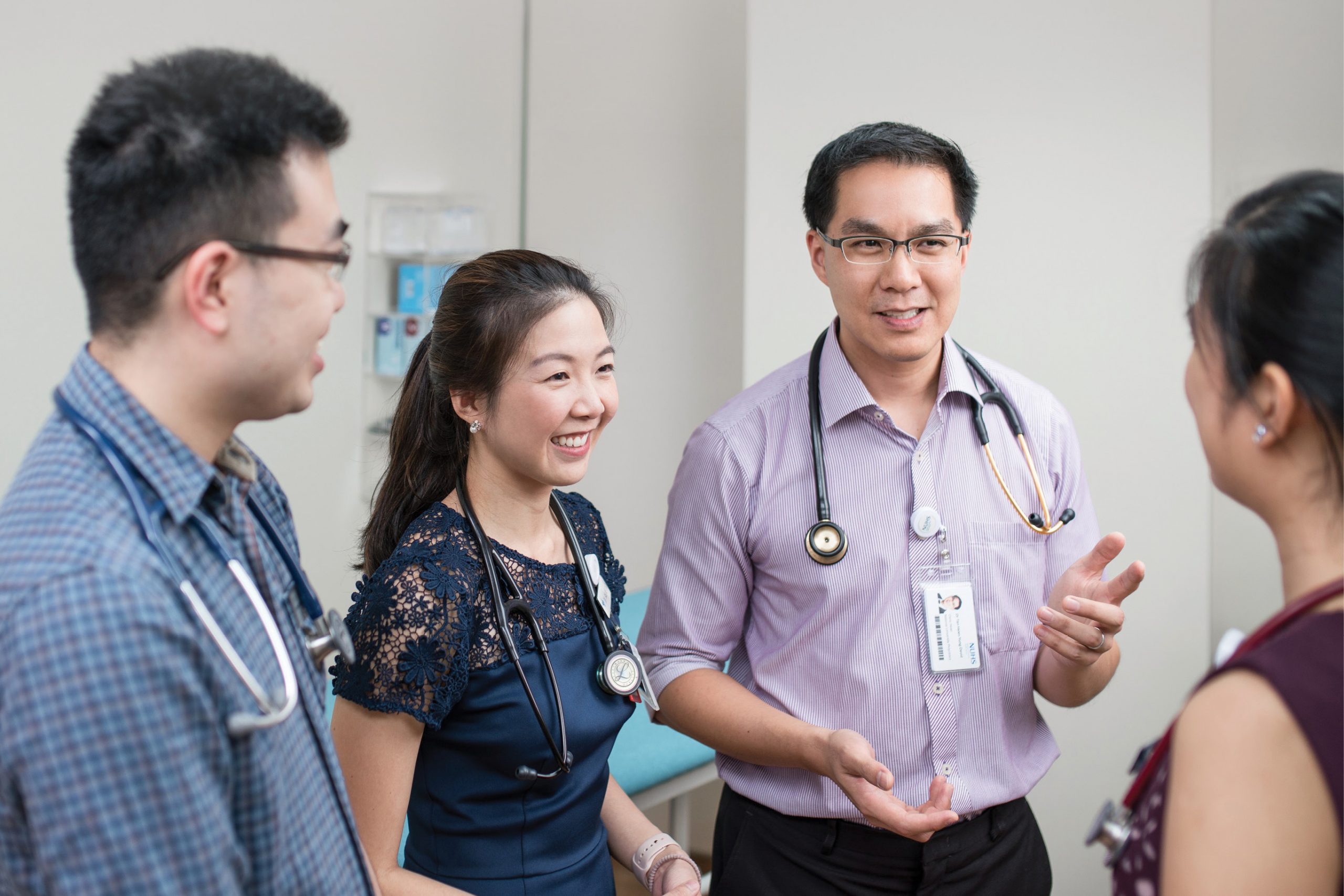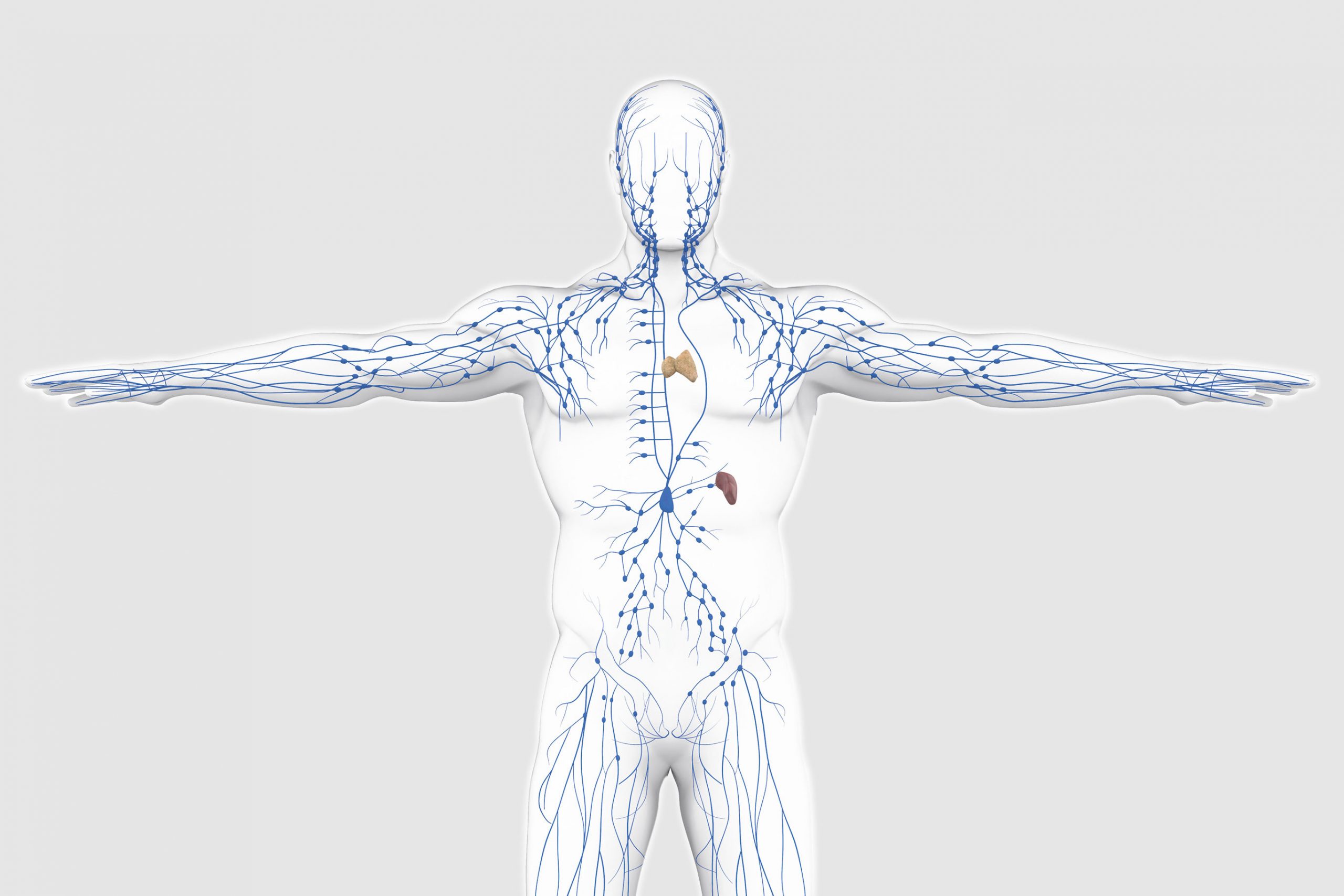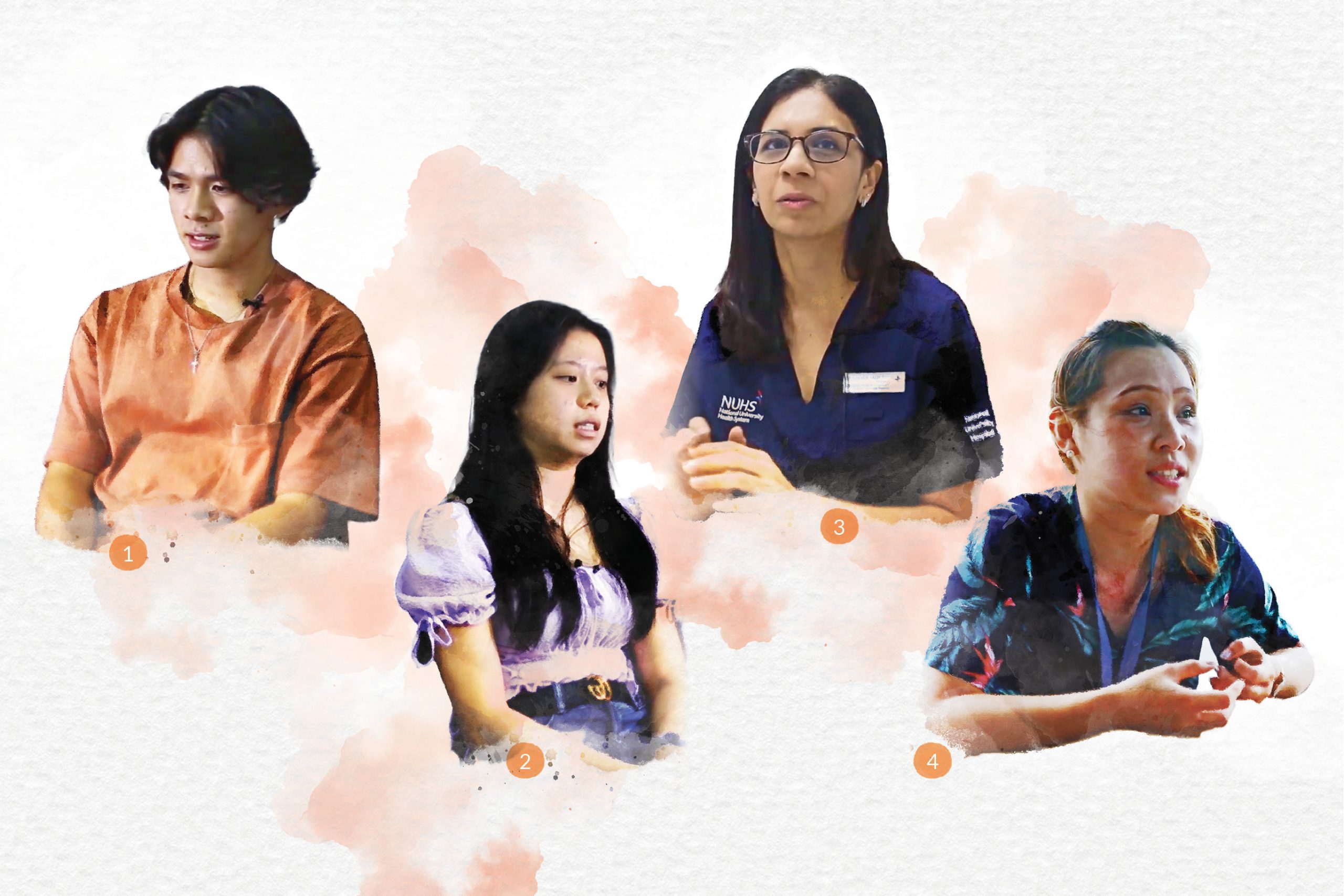
Issue 39 / August 2021
DOSSIER
NIC Art for Kids – Disrupting Cancer, Restoring Lives
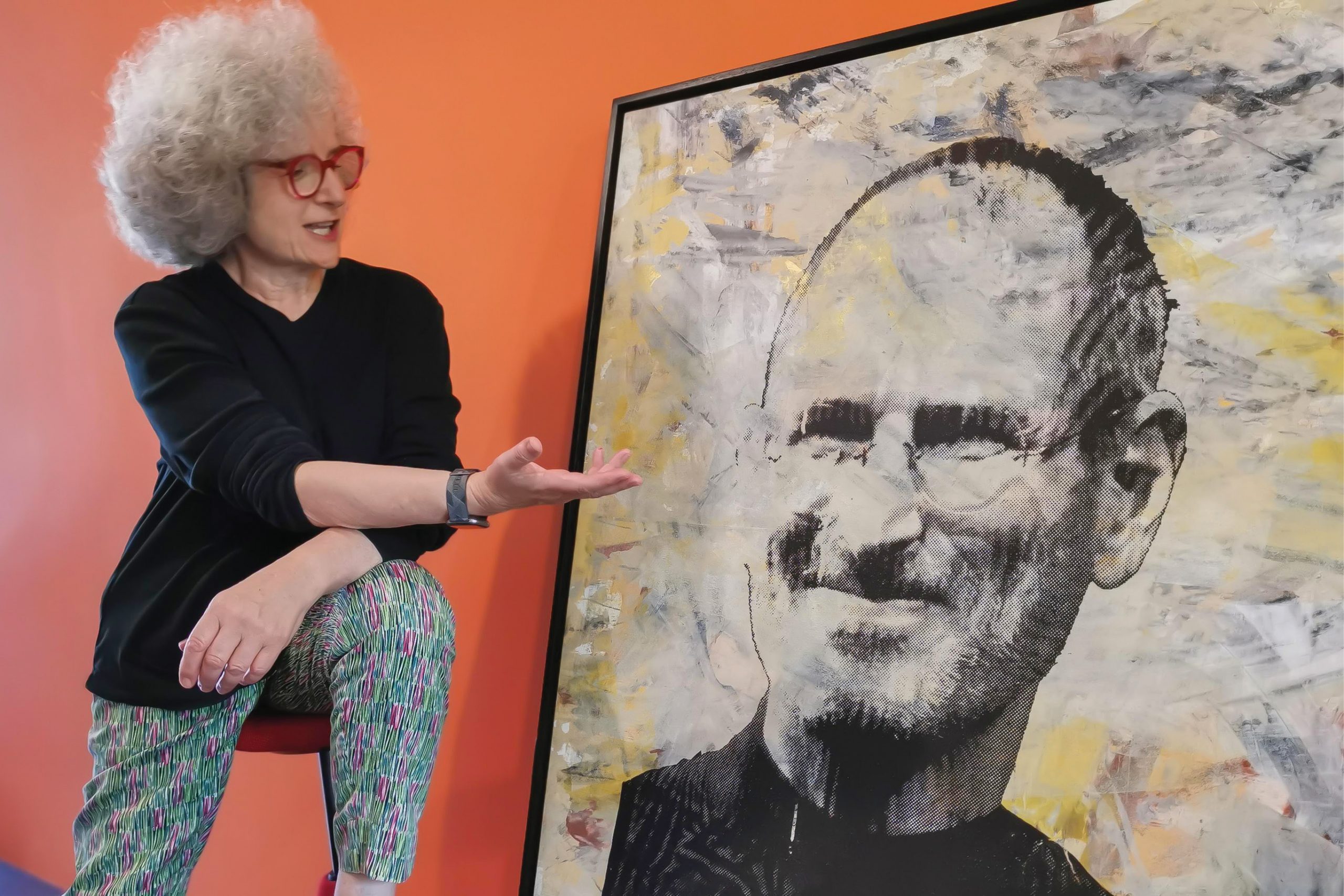
Proceeds from the charity donation and art auction will go towards improving the cure rate for children with cancer.
hen a child is diagnosed with cancer, the lives of everybody in the household gets affected. Parents’ work routines are disrupted, the child and siblings’ schooling may be upended. For paediatric oncologist Associate Professor Allen Yeoh, that was what the word “disrupted” meant to him, as he mused over the “Disruptors” exhibition and auction of artwork, organised to raise funds for child cancer research.
In September 2020, a series of paintings by renowned Lebanese humanity painter, Raouf Rifai, was first exhibited at The Fullerton Hotel Singapore with the support of NUS Medicine International Council (NIC) members, Mr Daryl Ng of the Ng Teng Fong Charitable Foundation and Dr Assaad Razzouk, Chairman and Chief Executive Officer of Sindicatum Renewable Energy, and art enthusiast. The works included portraits of internationally acclaimed innovators such as Jeff Bezos, Sergey Brin, Bill Gates, Steve Jobs, Yayoi Kusama and Mark Zuckerberg, among others.
Rifai’s paintings were subsequently displayed in late 2020 at the NUHS Tower Block to raise funds for research that Assoc Prof Yeoh was deeply involved in—innovation and research to “disrupt cancer and restore normalcy and life for children with cancer”. He explained, “In doing so, we also become a beacon to Asia and the region. Eventually, the knowledge and capabilities that (we build) will translate to better cure (for kids with cancer) everywhere in the world.”
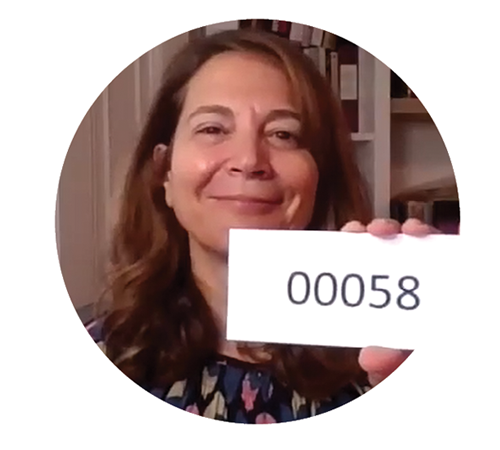
Financial Times Editor Ms Roula Khalaf with the winning number she picked out for the raffle.
It was a meaningful cause that Financial Times Editor Ms Roula Khalaf was delighted to be part of, to “make a very small contribution to this global effort against childhood cancer, which builds cultural bridges at the same time”. She was the Guest-of-Honour at the raffle-cum-charity donation drive and picked out the lucky raffle winner. The winner, Mrs Elisabeth de Rothschild, won a Steve Jobs’ painting donated by Dr Razzuok. She and many donors had contributed generously to raise funds for the paediatric oncology department at NUS.
NIC Chairman Professor Kishore Mahbubani, who hosted the online draw event in the midst of the global pandemic, was struck by Ms Khalaf’s note that more than 80% of children with cancer were cured in high income countries, whereas in the lower income countries, only about 20% were cured. He highlighted, “That’s a very sharp discrepancy. It shows that if you can spread what you’ve done in the developed world to the developing world, the number of lives we can save through exercises like these, is very significant.”
To contribute to this effort to help improve the cure rate of children with cancer, email nic@nus.edu.sg to purchase a painting. Or to make a tax deductible cash contribution, click here.

